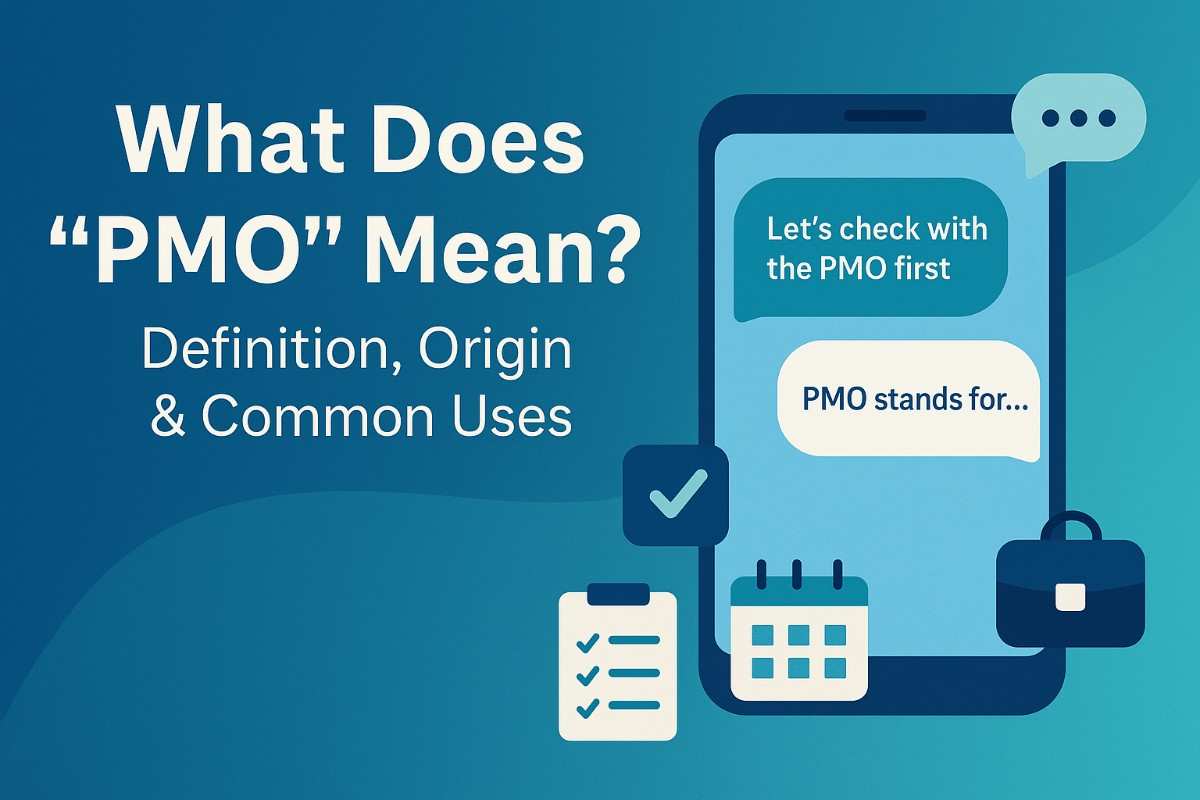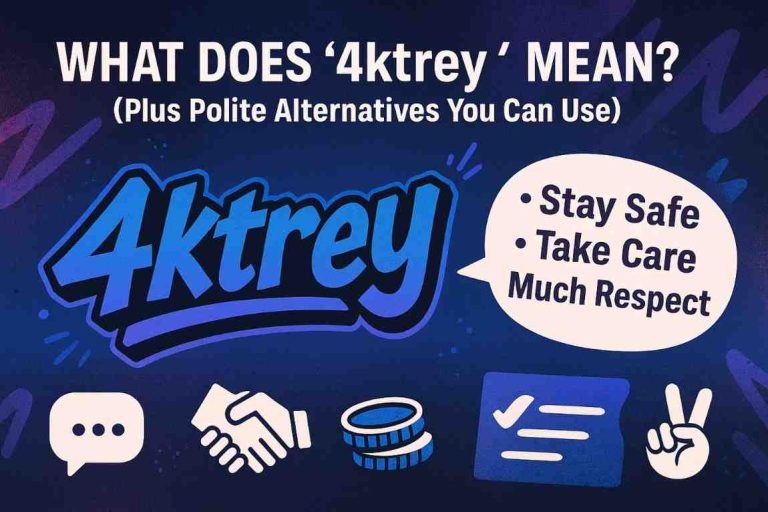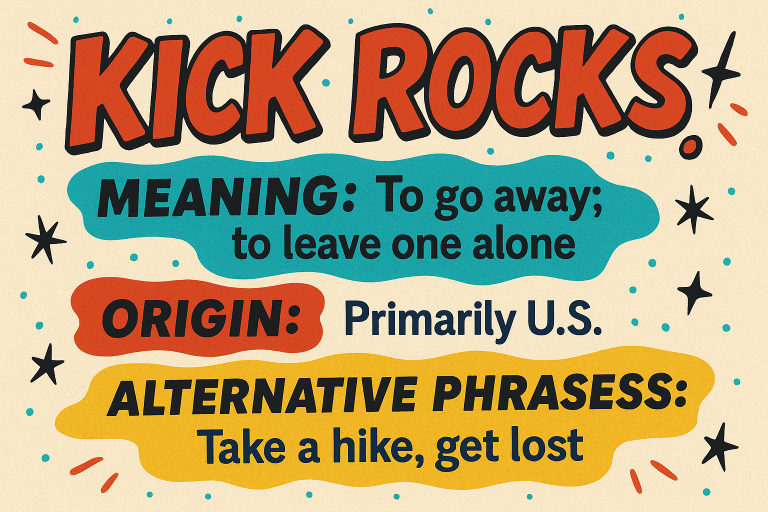What Does “PMO” Mean? Definition, Origin & Common Uses
You’ve probably seen the acronym “PMO” online or at work and wondered what it means. The tricky thing is that PMO has more than one meaning, depending on where you see it.
In business, PMO usually refers to a Project Management Office, a group or department that helps plan and control projects. In online conversations or social media, PMO might mean something completely different.
Understanding what PMO means depends on the context — who’s saying it and where it’s used. Let’s break it down step by step to make things clear, simple, and easy to remember.
What Does “PMO” Mean?
The acronym PMO can stand for several different things. Here are the most common meanings:
1. Project Management Office
In business and project settings, PMO stands for Project Management Office. It’s a department that defines and maintains standards for managing projects across a company.
The PMO provides structure. It helps teams plan better, track progress, and deliver results on time. It also ensures projects align with company goals.
For example:
“Our PMO helps all departments follow the same project process.”
That’s the most widely used meaning in the corporate world.
2. Put Me On
In online or social media conversations, PMO can also mean “put me on.” This is casual slang that means “tell me about it,” “introduce me,” or “help me out.”
People use it to ask for recommendations, hookups, or tips.
For example:
“PMO with a new playlist.”
Meaning: Share a good playlist with me.
3. Prime Minister’s Office
In politics or government discussions, PMO means Prime Minister’s Office. This refers to the administrative office that supports a country’s Prime Minister.
For example:
“The PMO announced new economic reforms.”
This usage is common in news articles and political reports, especially in countries like Canada, India, and the UK.
In short:
The meaning of PMO depends entirely on context. In business, it’s formal. Online, it’s casual. In politics, it’s official.
The Origin and History of the Phrase
Let’s look at how the term PMO developed across these three main meanings.
Business Origin – Project Management Office
The concept of a Project Management Office dates back to the 1950s and 1960s, when large organizations began managing multiple projects at once. They needed a way to create consistent processes and avoid chaos.
By the 1990s, PMOs became a standard part of corporate structure, especially in technology, construction, and government. The Project Management Institute (PMI) helped define the role formally through its publications and standards.
Today, PMOs exist in small startups and global corporations alike. They’re central to ensuring that projects stay on track, budgets stay balanced, and everyone follows the same plan.
Social Origin – “Put Me On”
The slang version of PMO grew out of African American Vernacular English (AAVE) and online culture. The phrase “put me on” was used in hip-hop communities as early as the 1990s to mean “connect me” or “help me get noticed.”
With the rise of social media, the phrase shortened to “PMO.” It’s often seen in comments, DMs, or tweets. The idea is friendly and casual — someone’s asking to be included or shown something new.
Political Origin – Prime Minister’s Office
The political use of PMO developed naturally as an abbreviation for government offices tied to a Prime Minister. It’s widely used in Canada, India, Australia, and the UK.
The Prime Minister’s Office handles communication, policy coordination, and official correspondence. It’s often mentioned in formal documents, press releases, or news headlines.
When & Where to Use “PMO”
Because PMO has several meanings, it’s important to match it to your situation. Here’s when and where each meaning fits best.
1. In Professional or Corporate Settings
Use PMO when talking about business or project management.
“The PMO sets the rules for all new projects.”
“We report to the PMO every week.”
It works in emails, presentations, and internal communication. It’s formal and widely understood in workplaces.
2. In Online or Social Settings
If you see PMO in a chat or on social media, it usually means “put me on.”
“PMO with that recipe!”
“PMO to your graphic designer — I need new art!”
This meaning is casual and friendly. Use it only in informal chats or among friends. Avoid using it in work-related or public professional spaces, where it may cause confusion.
3. In Political or News Discussions
When used in journalism or politics, PMO means “Prime Minister’s Office.”
“The PMO released a statement about the meeting.”
You’ll see this in newspapers, government reports, or political commentary. It’s always formal and used in third-person contexts.
Quick tip:
If you’re unsure which meaning applies, check the tone of the conversation. Business? Probably Project Management Office. Chat or social post? Likely “put me on.” News or politics? Definitely Prime Minister’s Office.
Read Also – But Did You Die: Meaning, Usage, and Better Alternatives
Alternatives to “PMO”
Here are several clear and accurate alternatives you can use instead of PMO, depending on context.
1. Project Department
Meaning: A group that manages projects within a company.
Explanation: Similar to a PMO, but simpler.
Example: “The project department reviews every new plan.”
Best Use: When writing or speaking in simple business language.
2. Project Control Office
Meaning: A team that tracks project schedules and costs.
Explanation: Used in industries like construction or engineering.
Example: “The project control office monitors deadlines closely.”
Best Use: Formal business or technical communication.
3. Management Team
Meaning: The group responsible for overseeing business operations.
Explanation: Broader than PMO but still accurate for general use.
Example: “Our management team approves all major projects.”
Best Use: Business communication, reports, or presentations.
4. Connect Me
Meaning: The slang version of “put me on.”
Explanation: A clearer, friendlier way to say you want to be introduced or informed.
Example: “Connect me with your designer.”
Best Use: Social or professional networking.
5. Show Me
Meaning: A simple way to ask for information or recommendations.
Explanation: Replaces “put me on” in an easy-to-understand form.
Example: “Show me your favorite playlist.”
Best Use: Informal chats and social media captions.
6. Prime Minister’s Office (Full Form)
Meaning: The administrative branch that supports a Prime Minister.
Explanation: Always formal and clear in political use.
Example: “The Prime Minister’s Office announced the new cabinet members.”
Best Use: News writing, political analysis, or public communication.
Simple and Polite Responses to “PMO”
Your response should match the meaning and tone of how PMO is used. Here’s how to handle each case.
When PMO Means “Project Management Office”
Professional replies:
- “Got it, I’ll send the report to the PMO.”
- “Thanks, I’ll check with the PMO for approval.”
- “The PMO has the final word on that.”
Keep your tone formal and concise.
When PMO Means “Put Me On”
Casual replies:
- “Sure! I’ll send you the link.”
- “No problem — I got you.”
- “Haha, okay, I’ll put you on!”
Keep it friendly and relaxed. It’s just casual slang between friends or peers.
When PMO Means “Prime Minister’s Office”
Formal replies:
- “The PMO’s decision is final.”
- “We’re awaiting a statement from the PMO.”
- “I’ll refer to the PMO announcement.”
Keep your response neutral and respectful since it’s about a government office.
Avoid confusion:
If you’re unsure which meaning someone intended, it’s okay to ask:
“Just to confirm — are you referring to the Project Management Office or something else?”
This keeps communication clear and avoids misunderstanding.
Conclusion
The acronym PMO is a perfect example of how context shapes meaning. It can mean a Project Management Office in business, Put Me On in social media slang, or the Prime Minister’s Office in politics.
Understanding where and how it’s used helps you respond correctly and sound natural. In professional life, PMO represents structure and process. Online, it signals casual connection and curiosity. In politics, it refers to leadership and decision-making.
Language evolves fast, and acronyms like PMO prove that meaning depends on setting. Always read the situation first, then match your tone.
So, next time someone says “PMO,” you’ll know exactly what they mean — and you’ll be ready to answer like a pro.

A former editor and grammar geek, David Langford has spent years refining the art of clear communication. He combines his journalism background with a knack for teaching, offering straightforward tips to master tricky grammar rules. When he’s not proofreading, he’s probably debating Oxford commas.







